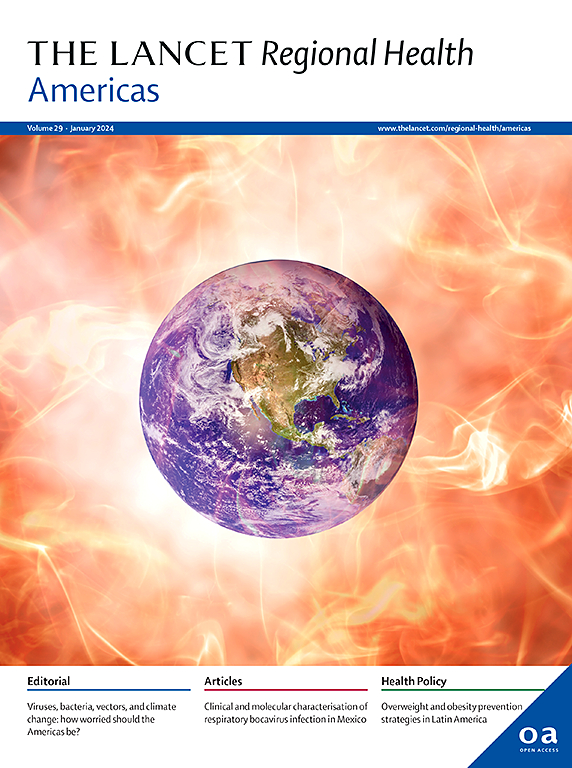Prenatal Chagas disease screening in Latin America: the current policy landscape and potential utility of an expanded maternal-familial Trypanosoma cruzi testing framework
IF 7
Q1 HEALTH CARE SCIENCES & SERVICES
引用次数: 0
Abstract
In 2018, revised World Health Organization guidance moved toward eliminating congenital Chagas disease (Trypanosoma cruzi)—a traditionally vector-borne parasitic disease that can chronically infect persons and be vertically transmitted from untreated mothers to their fetuses during pregnancy. Several endemic countries have since adopted risk-based or universal prenatal screening policies with high variation among strategies, implementation, coverage, and reporting. This article describes a collaborative investigation between researchers and the Salvadoran Ministry of Health, where expanded infant and family follow-up testing was executed after mothers tested T. cruzi positive during parturition. In this pilot study, we found 16% (n = 5/32) of familial members tested positive for previously undiagnosed infection. This manuscript highlights lessons learned from a familial follow-up testing initiative, provides rationale in support of expanding the maternal-familial T. cruzi screening framework in endemic countries, and describes updates on international progress towards implementation of prenatal screening as indicated by updated World Health Organization guidance.
拉丁美洲产前恰加斯病筛查:目前的政策格局和扩大母体-家族克氏锥虫检测框架的潜在效用
2018年,经修订的世界卫生组织指南朝着消除先天性恰加斯病(克氏锥虫)的方向发展。这是一种传统上由媒介传播的寄生虫病,可慢性感染人,并在怀孕期间由未经治疗的母亲垂直传播给胎儿。此后,一些流行国家采取了基于风险或普遍的产前筛查政策,在战略、实施、覆盖和报告方面存在很大差异。本文描述了研究人员与萨尔瓦多卫生部之间的一项合作调查,在母亲在分娩期间检测出克鲁兹弓形虫阳性后,开展了扩大的婴儿和家庭后续检测。在这项初步研究中,我们发现16% (n = 5/32)的家庭成员检测出以前未诊断的感染呈阳性。这份手稿强调了从家族后续检测行动中吸取的经验教训,提供了支持在流行国家扩大母体-家族克氏锥虫筛查框架的理由,并描述了世界卫生组织最新指南所指出的在实施产前筛查方面国际进展的最新情况。
本文章由计算机程序翻译,如有差异,请以英文原文为准。
求助全文
约1分钟内获得全文
求助全文
来源期刊

Lancet Regional Health-Americas
Multiple-
CiteScore
8.00
自引率
0.00%
发文量
0
期刊介绍:
The Lancet Regional Health – Americas, an open-access journal, contributes to The Lancet's global initiative by focusing on health-care quality and access in the Americas. It aims to advance clinical practice and health policy in the region, promoting better health outcomes. The journal publishes high-quality original research advocating change or shedding light on clinical practice and health policy. It welcomes submissions on various regional health topics, including infectious diseases, non-communicable diseases, child and adolescent health, maternal and reproductive health, emergency care, health policy, and health equity.
 求助内容:
求助内容: 应助结果提醒方式:
应助结果提醒方式:


